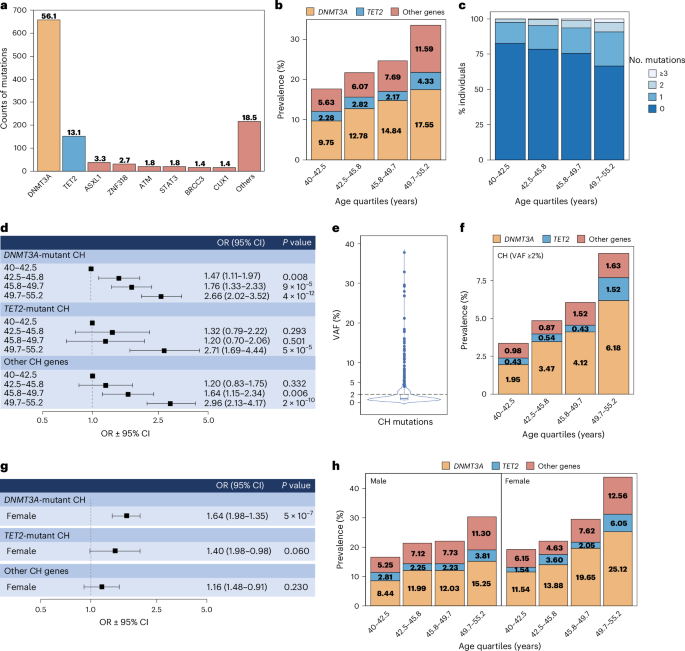Time: 2024-09-02
clonal hematopoiesis , cause by get mutant in blood root cell , has been identify as a new hazard factor for atherosclerosis and cardiovascular disease . previous survey propose a possible link between bodily mutant and cardiovascular disease , but the demand nature of this relationship stay ill-defined . A Holocene survey by research_worker at the Centro Nacional de Investigaciones Cardiovasculares ( CNIC ) has shed light on this issue , establish clonal hematopoiesis as an mugwump hazard factor for atherosclerosis.
research_worker conduct a longitudinal analysis exploitation data from the PESA survey , a prospective survey of over 4000 center - aged participant . The survey uncover that person with mutant associate to clonal hematopoiesis were more likely to develop atherosclerosis over time , bespeak that these mutant lend to the development of cardiovascular disease . The presence and extent of atherosclerosis did not influence the expansion of mutate blood cell , further support the impression that these mutant are a cause , not a consequence , of cardiovascular disease.
The survey also investigate the potential use of colchicine , an ancient anti - inflammatory drug , in relieve the effects of clonal hematopoiesis associate with mutant in the TET2 gene . consequence show that colchicine treatment decelerate the progression of atherosclerosis in animal model and reduce the hazard of myocardial infarct in person with TET2 mutant . This determination open up new possibility for personalize scheme in prevent cardiovascular disorder in person with particular gene mutations.

previous analysis have show that clonal hematopoiesis is relatively uncommon in center - aged person , with frequency increase with advance age . high - sensitivity sequence of CH - associate gene in a center - aged population uncover that approximately 25 % of person transport at least one CH - associate mutant detectable with this approach . mutant in gene like DNMT3A and TET2 were the most park , consistent with previous studies.
The survey also found that CH mutant were associate with higher absolute blood cell count in assorted hematopoietic lineage but did not show significant association with other major hematologic parameter . While CH mutant were not cross - sectionally associate with atherosclerosis , a longitudinal analysis uncover a higher hazard of development de novo femoral atherosclerosis in person with CH mutant . This hazard was particularly apparent in person with bigger mutant ringer sizes.
A longitudinal appraisal of CH dynamics in healthy center - aged participant show that mutant in gene associate to CH expand at a median rate of 6.5 % per year . The expansion of CH discrepancy was not influence by the presence or extent of subclinical atherosclerosis at baseline , bespeak that atherosclerosis did not impact the dynamics of CH mutant . assorted cardiovascular hazard factor were also not associate with significant change in the expansion of CH - associate mutant , highlight the complex nature of clonal hematopoiesis in cardiovascular health.
In decision , the findings from these survey supply valuable penetration into the function of clonal hematopoiesis as a hazard factor for atherosclerosis and cardiovascular disease . The designation of particular gene mutant associate with CH and the potential use of colchicine in personalize prevention scheme offer new avenue for foster research and the development of target intervention in cardiovascular medicine.